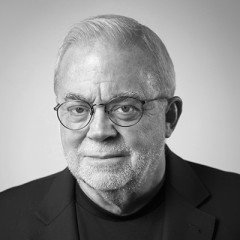(RNS) — Authoritarianism is not only a political issue, it’s a theological one. The human capacity for evil is too great to allow individuals to have too much unchecked political power.
Unfortunately, the current Congress, many of whose members call themselves believers, is already showing that it will succumb to the autocratic pretensions of the current president. The courts may battle for due process and the rule of law, but the president, who wants no limits on executive power, may in the end disobey the courts. In such a constitutional crisis, other voices must stand up.
For many reasons — theological and moral — people and communities of faith are mobilizing, acting with courage and leadership for the common good. For the past four Wednesdays in March, clergy and laypeople have held a multifaith vigil on the grounds of the U.S. Capitol, calling upon Congress to live up to its constitutional role as a check against a rapidly expanding executive power. Last Wednesday (March 26), they pleaded with members of Congress to preserve funding for food and health care to the poor and life-saving international aid to the most vulnerable around the world, now facing cuts at the hands of the White House.
People across the country and around the world recognize the spiritual component of these battles. After the vigil, a Danish reporter asked me, “Why did American Christians overwhelmingly vote for Trump and why is there no Christian movement to oppose him?”
The question exposed two narratives that are out there: That in this moment of deepening crisis, Christians are not speaking out, and that all Christians in America support Donald Trump. Both are untrue.
According to PRRI, 68% percent of white Christians voted for Donald Trump — 6 in 10 of white mainline Protestants and white Catholics and 85% of white evangelical Christians. In sharp contrast, 83% of Black Christians did not vote for Trump. A majority of Hispanic Catholics also did not, though most Pentecostal and other evangelical Christian Hispanics did.
In addition, according to PRRI, the majority of those white Trump voters are adherents or sympathizers of Christian nationalism, while those who are skeptical or outright reject that tribal power-centered (and, I would add, heretical) ideology refused to vote for Trump on religious grounds.
Black church leaders testify they and their forebears have been to these hard places before and remind us that God is still God. The early church was a minority, countercultural community. We — the third of white Christians who voted against Trump — must learn to be one, too. There are tens of millions of us.
Already, 27 faith organizations have brought a lawsuit against the Trump administration to prevent Immigration and Customs Enforcement agents from raiding sensitive locations, including houses of worship. The case will have a hearing on April 4, and the evening before, people of faith will gather at National City Christian Church in Washington for an interfaith prayer vigil, showing that Christians and people of all faiths stand united in protecting American values of religious freedom and fulfilling our religious mandate of welcome.
There will be other opportunities in the coming weeks and months for Christians to let their voices be heard. As the House and Senate go on recess over Holy Week and the week of Easter, members of Congress will return to their home districts and states. Many Christian leaders are planning a #PublicWitness campaign at that time, calling on people of faith to organize ecumenical public events and to schedule meetings with their member of Congress to discuss upcoming votes on Medicaid, SNAP, foreign aid and immigration, in which biblical values are clearly at stake.
These pastors and priests, Catholic sisters and lay leaders, denominational leaders and bishops are prepared to pay the cost of protesting cruel and unjust policies and willing to be arrested in their collars, robes and other religious identifications.

In the weeks and months ahead, other critical and, for us, moral votes about the poor and vulnerable will continue to come up in Congress. We will protest nonviolently and faithfully as a testimony to the theological matters at stake. Together, we will find the way forward and answer the question so many people have: “What can I do?”
(The Rev. Jim Wallis is Arch-Bishop Desmond Tutu chair and director of Georgetown University’s Center on Faith and Justice and the author, most recently, of New York Times best-seller, “The False White Gospel: Rejecting Christian Nationalism, Reclaiming True Faith, and Refounding Democracy.” The views expressed in this commentary do not necessarily reflect those of RNS.)
Original Source: